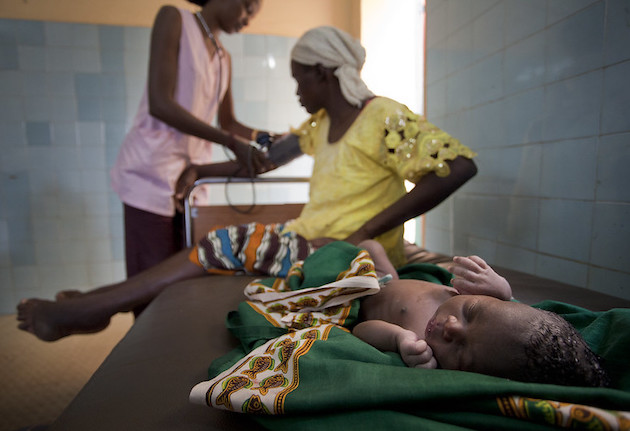
Five million children worldwide die before fifth birthday, says UN
Five million children worldwide died before their fifth birthday in 2021, with almost half (47%) dying during their first month, according to new UN figures.
Most of the deaths could have been prevented with better healthcare, say campaigners, adding that deaths among newborn babies haven’t reduced significantly since 2017.
The figures, published by the UN Inter-agency Group for Child Mortality Estimation, showed that while mortality rates have fallen since 2000, progress has slowed over the past 12 years.
Dr Vandana Tripathi, the director of the Momentum safe surgery in family planning and obstetrics programme at the NGO EngenderHealth, said: “Sadly, the 2.3 million newborns who died in the first month of life isn’t a significant reduction from the 2.5 million babies who died in their first month in 2017.
“This confirms that, despite the significant progress in reducing maternal mortality, huge needs remain in strengthening safe, quality childbirth care, particularly in obstetric emergencies in sub-Saharan Africa.”
Children born in sub-Saharan Africa are 15 times more likely to die in childhood than children in Europe and North America.
UN figures also show that 1.9 million babies were stillborn during 2021, more than three-quarters (77%) in sub-Saharan Africa and in south Asia. The risk of a woman having a stillborn baby in sub-Saharan Africa is seven times greater than for women in Europe and North America.
Premature birth and complications during labour are the leading causes of neonatal deaths. Similarly, more than 40% of stillbirths occur during labour. For children who survive past their first 28 days, diseases such as pneumonia, diarrhoea and malaria pose the biggest threat, said the UN.
“Every day, far too many parents are facing the trauma of losing their children, sometimes even before their first breath,” said Vidhya Ganesh, the director of data analytics, planning and monitoring at Unicef. “Such widespread, preventable tragedy should never be accepted as inevitable.”
Kristy Kade, the director of White Ribbon Alliance, which campaigns for women’s and girls’ health, rights, and gender equality, said the figures were not surprising. “We are not paying attention to women before they become pregnant,” she said. “These figures are the results of poverty, hunger and being unhoused. We are not going to improve without focusing on women.”
She added that women, children and babies’ chances of survival were greatly reduced because midwives and nurses were leaving health services around the world “in droves” because of poor pay.
“We can’t have women survive if the midwives can’t survive,” she said. “Midwives can solve many of the issues that kill mothers and babies.”
While Covid-19 did not greatly affect child mortality, the pandemic may have increased future risks of survival, said the UN. The pandemic has fuelled one of the largest sustained reversals in global vaccination coverage with tens of millions of children now vulnerable to preventable diseases.
Further resources
Improve healthcare access to end ‘preventable tragedy’ of child mortality - UN News
Original source: The Guardian
Image credit: Some rights reserved by World Bank Photo Collection, flickr creative commons
